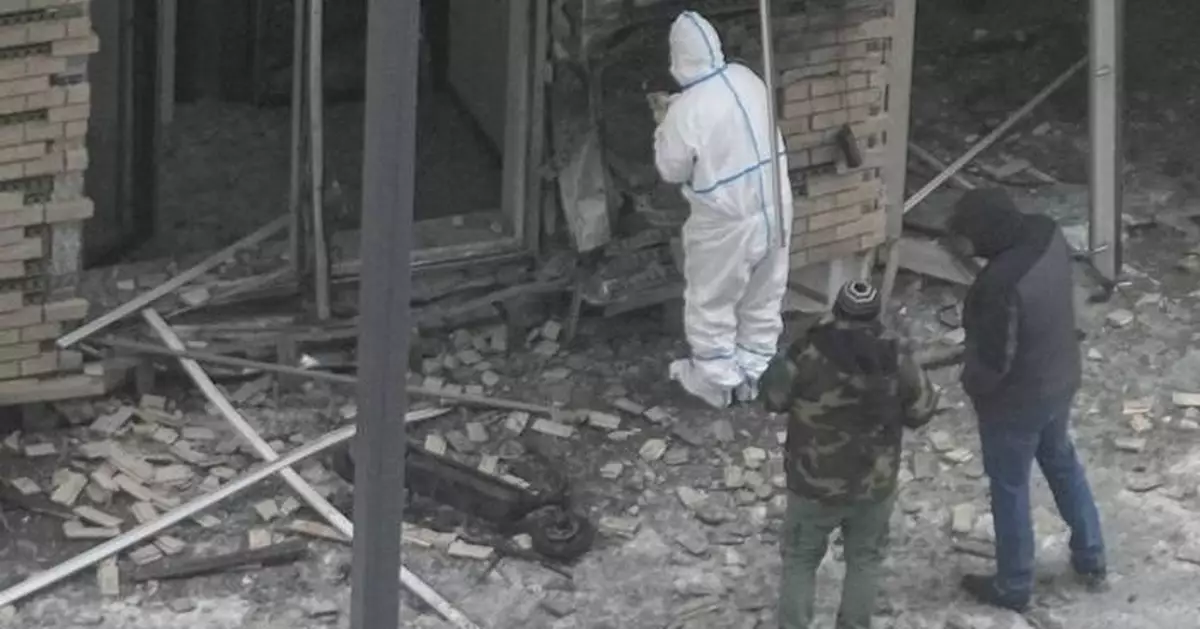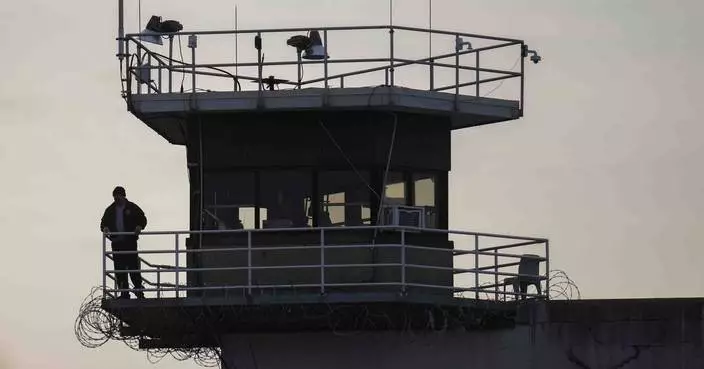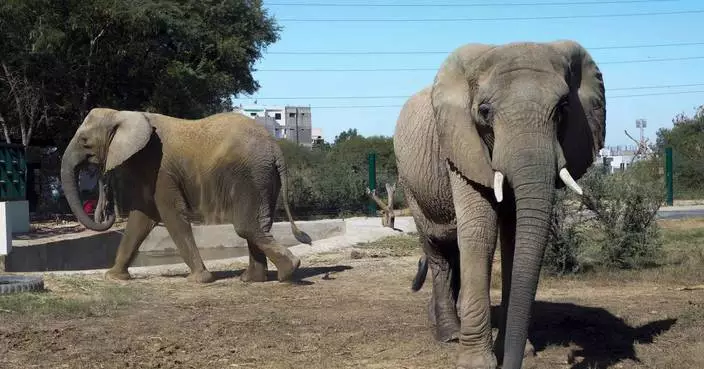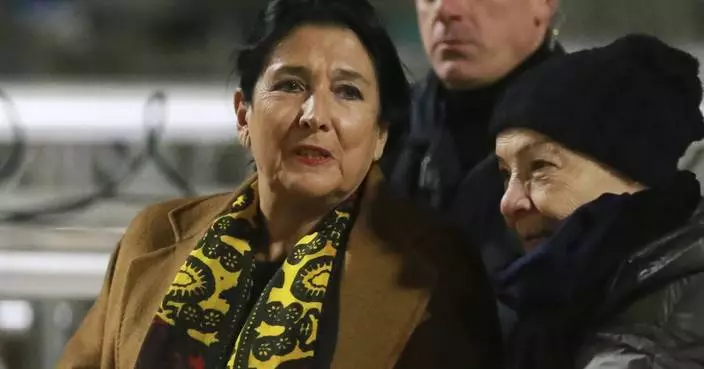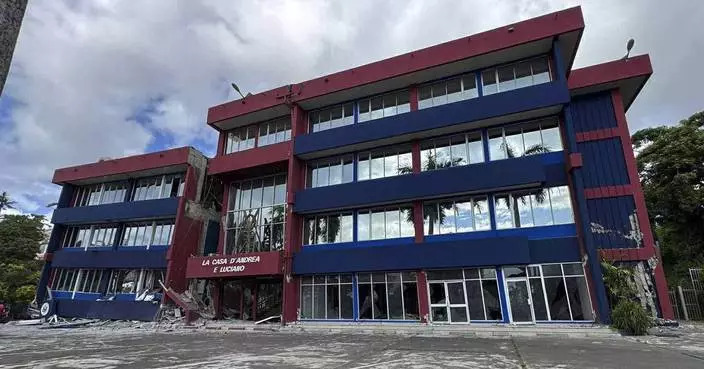Russia's security service said Wednesday that it has detained a suspect in the killing of a senior general in Moscow.
The suspect was described as an Uzbek citizen recruited by Ukrainian intelligence services.
Click to Gallery
EDS NOTE: GRAPHIC CONTENT - Investigators work at the place where Lt. General Igor Kirillov, the head of Russia's Nuclear, Biological, and Chemical Defence Forces and his assistant Ilya Polikarpov were killed by an explosive device planted close to a residential apartment's block in Moscow, Russia, Tuesday, Dec. 17, 2024. (AP Photo)
Investigators work at the place where Lt. General Igor Kirillov, the head of Russia's Nuclear, Biological, and Chemical Defence Forces and his assistant, seen at lower center, were killed by an explosive device planted close to a residential apartment's block in Moscow, Russia, Tuesday, Dec. 17, 2024. (AP Photo)
Investigators work near a scooter at the place where Lt. General Igor Kirillov, the head of Russia's Nuclear, Biological, and Chemical Defence Forces and his assistant Ilya Polikarpov were killed by an explosive device planted close to a residential apartment's block in Moscow, Russia, Tuesday, Dec. 17, 2024. (AP Photo)
Workers load a body of Lt. General Igor Kirillov, the head of Russia's Nuclear, Biological, and Chemical Defence Forces into a bus after he and his assistant Ilya Polikarpov were killed by an explosive device planted close to a residential apartment's block in Moscow, Russia, Tuesday, Dec. 17, 2024. (AP Photo)
FILE - In this photo taken from video released by Russian Defense Ministry Press Service on Feb. 28, 2023, the head of the radiation, chemical and biological defense troops of the Russian Armed Forces Lt. Gen. Igor Kirillov speaks during a briefing in Moscow, Russia. (Russian Defense Ministry Press Service via AP, File)
Investigators work near a scooter at the place where Lt. General Igor Kirillov, the head of Russia's Nuclear, Biological, and Chemical Defence Forces and his assistant Ilya Polikarpov were killed by an explosive device planted close to a residential apartment's block in Moscow, Russia, Tuesday, Dec. 17, 2024. (AP Photo)
Lt. Gen. Igor Kirillov was killed Tuesday by a bomb hidden in a scooter outside his apartment building in Moscow, a day after Ukraine’s security service leveled criminal charges against him. His assistant also died in the attack. A Ukrainian official said the service carried out the attack.
Russia’s Federal Security Service, or FSB, didn't name the suspect, but said he was born in 1995. According to a statement by the FSB, the suspect said himself that he was recruited by Ukrainian special services. AP can’t confirm the conditions under which the suspect spoke to the security services.
The FSB said the suspect had been promised a reward of $100,000 and permission to move to a European Union country in exchange for killing Kirillov.
The agency stated that acting on instructions from Ukraine, the suspect traveled to Moscow, where he picked up a homemade explosive device. He placed the device on an electric scooter and parked it at the entrance to the residential building where Kirillov lived.
The suspect then rented a car to monitor the location and set up a camera that livestreamed the scene to his handlers in the central Ukrainian city of Dnipro. Once Kirillov was seen leaving the building, the suspect detonated the bomb. The suspect faces a sentence of up to life imprisonment, the FSB said.
The suspect was detained in a village in the Moscow region, according to Ministry of Internal Affairs official Irina Volk, who was quoted by Russian state news agency TASS.
Kirillov, 54, was the chief of the military’s nuclear, biological and chemical protection forces and was under sanctions from several countries, including the U.K. and Canada, for his actions in Russia's full-scale invasion of Ukraine. On Monday, Ukraine’s Security Service, or SBU, opened a criminal investigation against him, accusing him of directing the use of banned chemical weapons.
Russia has denied using any chemical weapons in Ukraine and has accused Kyiv of using toxic agents in combat.
Kirillov, who took his current job in 2017, was one of the most high-profile figures to level those accusations. He held numerous briefings to accuse the Ukrainian military of using toxic agents and planning to launch attacks with radioactive substances — claims that Ukraine and its Western allies rejected as propaganda.
An official with the SBU said Tuesday that the agency was behind the attack. The official, who spoke on condition of anonymity because they were not authorized to release the information, described Kirillov as a “war criminal and an entirely legitimate target.”
The SBU official provided video that they said was of the bombing. It shows two men leaving a building shortly before a blast fills the frame.
Russia’s top state investigative agency said it’s looking into Kirillov’s death as a case of terrorism, and officials in Moscow vowed to punish Ukraine.
The Kremlin said Wednesday that it was “obvious” that Ukraine was behind Kirillov's killing. Spokesperson Dmitry Peskov said that Kyiv “does not shy away from terrorist methods.”
Illia Novikov contributed to this report from Kyiv, Ukraine.
Follow AP’s coverage of the war in Ukraine at https://apnews.com/hub/russia-ukraine
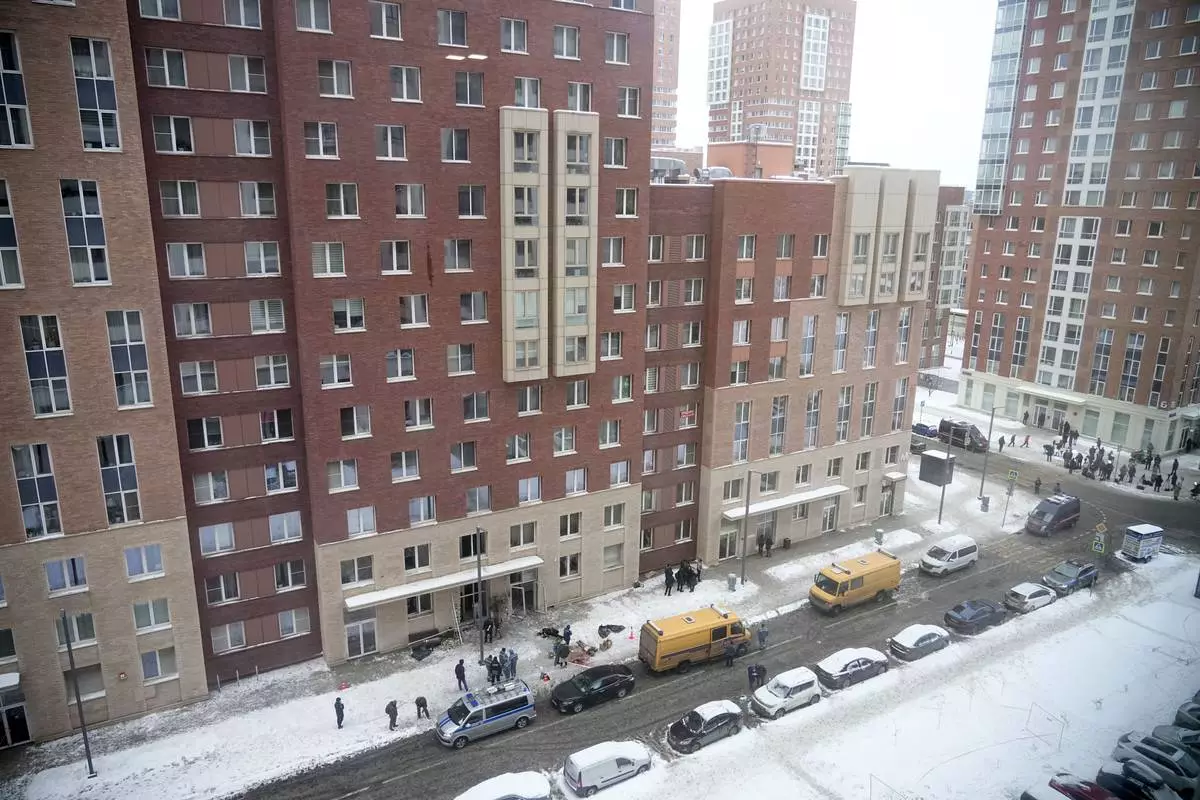
EDS NOTE: GRAPHIC CONTENT - Investigators work at the place where Lt. General Igor Kirillov, the head of Russia's Nuclear, Biological, and Chemical Defence Forces and his assistant Ilya Polikarpov were killed by an explosive device planted close to a residential apartment's block in Moscow, Russia, Tuesday, Dec. 17, 2024. (AP Photo)
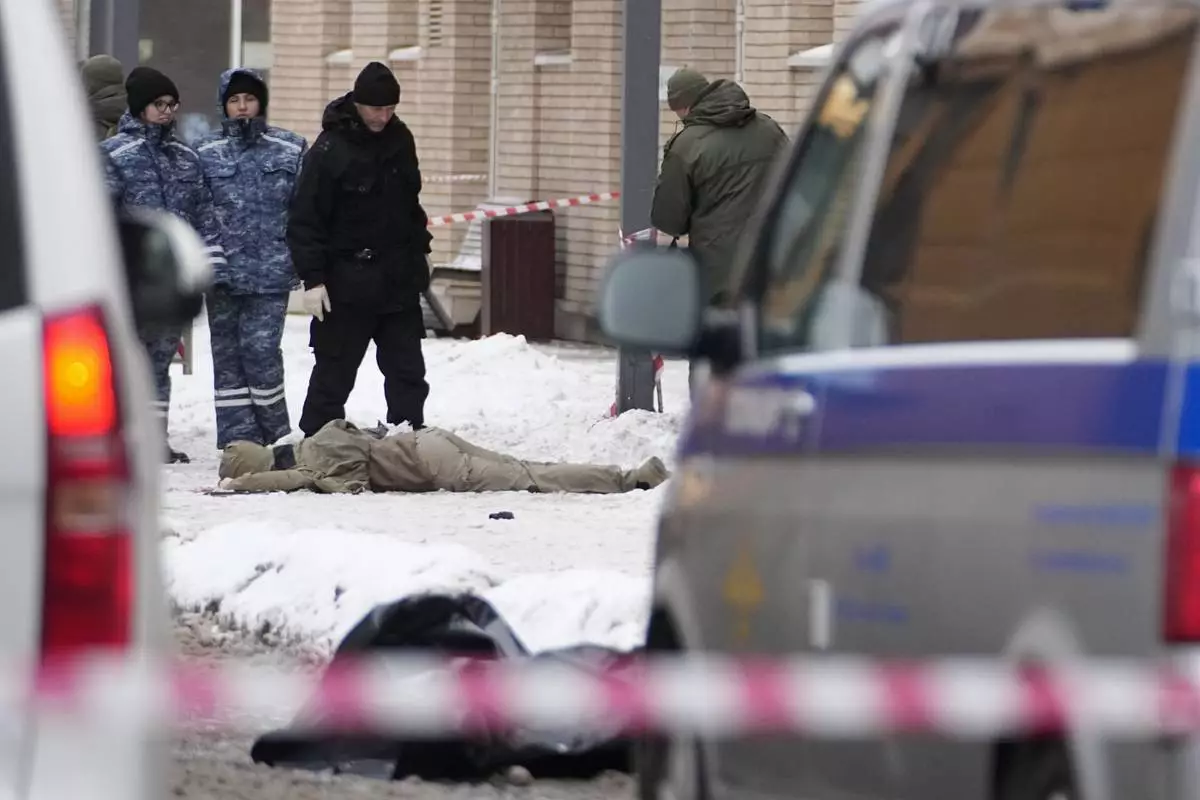
Investigators work at the place where Lt. General Igor Kirillov, the head of Russia's Nuclear, Biological, and Chemical Defence Forces and his assistant, seen at lower center, were killed by an explosive device planted close to a residential apartment's block in Moscow, Russia, Tuesday, Dec. 17, 2024. (AP Photo)
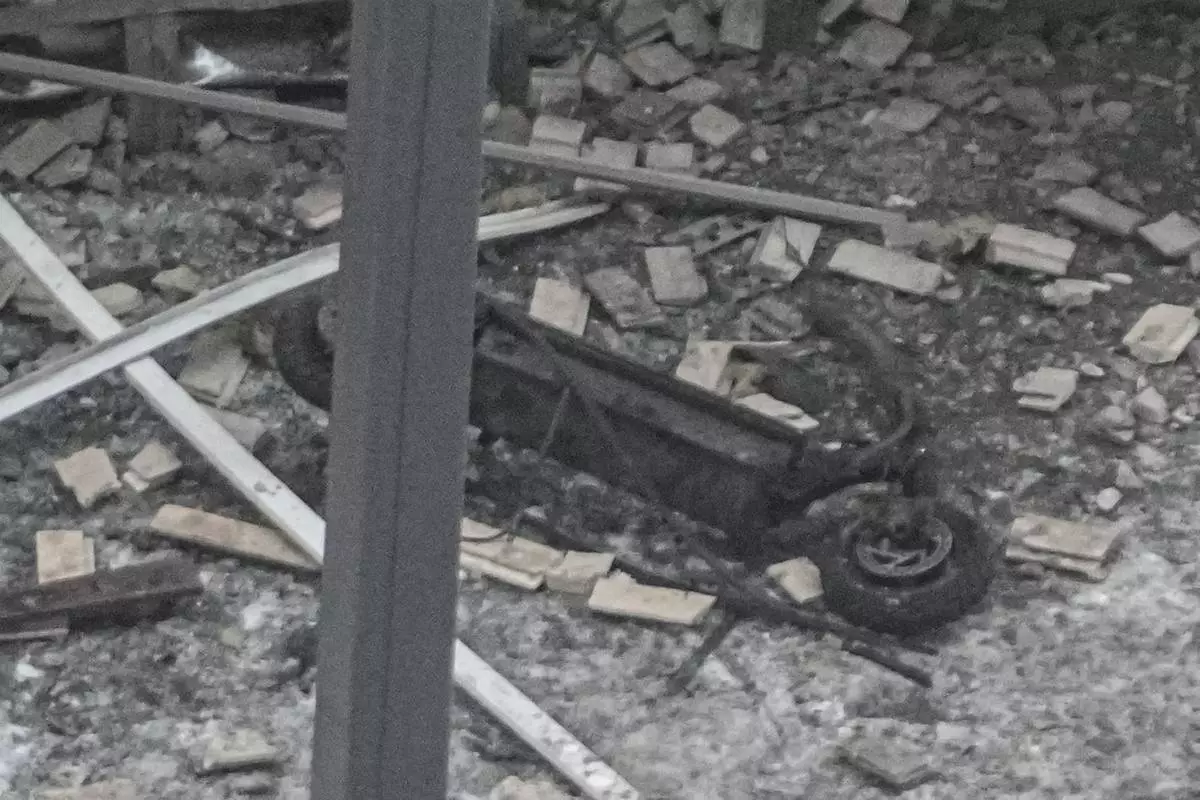
Investigators work near a scooter at the place where Lt. General Igor Kirillov, the head of Russia's Nuclear, Biological, and Chemical Defence Forces and his assistant Ilya Polikarpov were killed by an explosive device planted close to a residential apartment's block in Moscow, Russia, Tuesday, Dec. 17, 2024. (AP Photo)
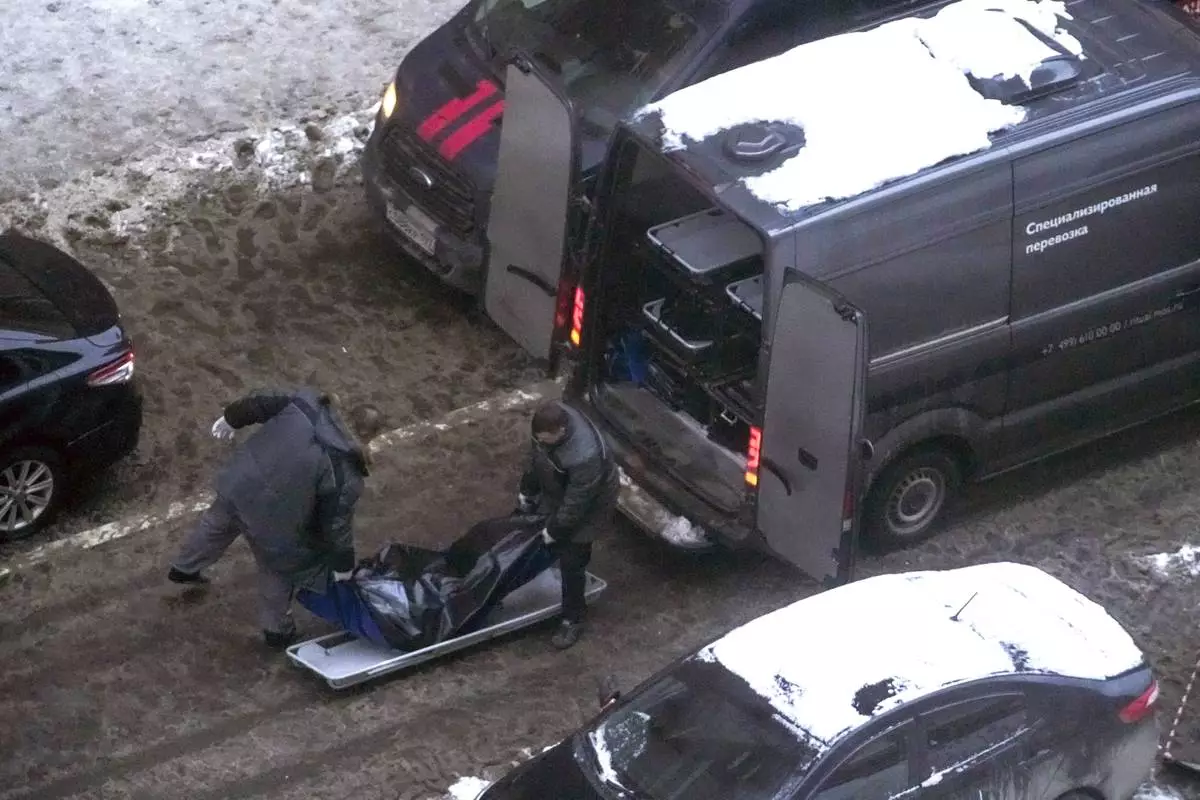
Workers load a body of Lt. General Igor Kirillov, the head of Russia's Nuclear, Biological, and Chemical Defence Forces into a bus after he and his assistant Ilya Polikarpov were killed by an explosive device planted close to a residential apartment's block in Moscow, Russia, Tuesday, Dec. 17, 2024. (AP Photo)
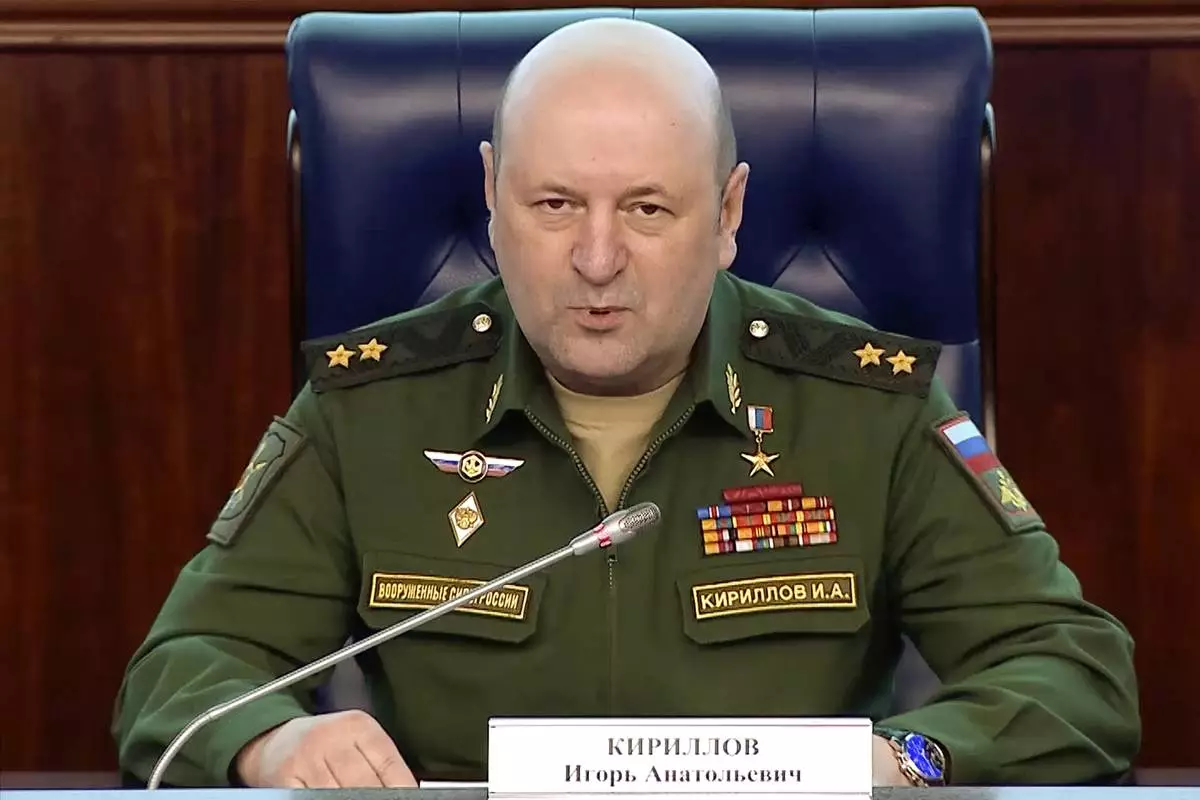
FILE - In this photo taken from video released by Russian Defense Ministry Press Service on Feb. 28, 2023, the head of the radiation, chemical and biological defense troops of the Russian Armed Forces Lt. Gen. Igor Kirillov speaks during a briefing in Moscow, Russia. (Russian Defense Ministry Press Service via AP, File)
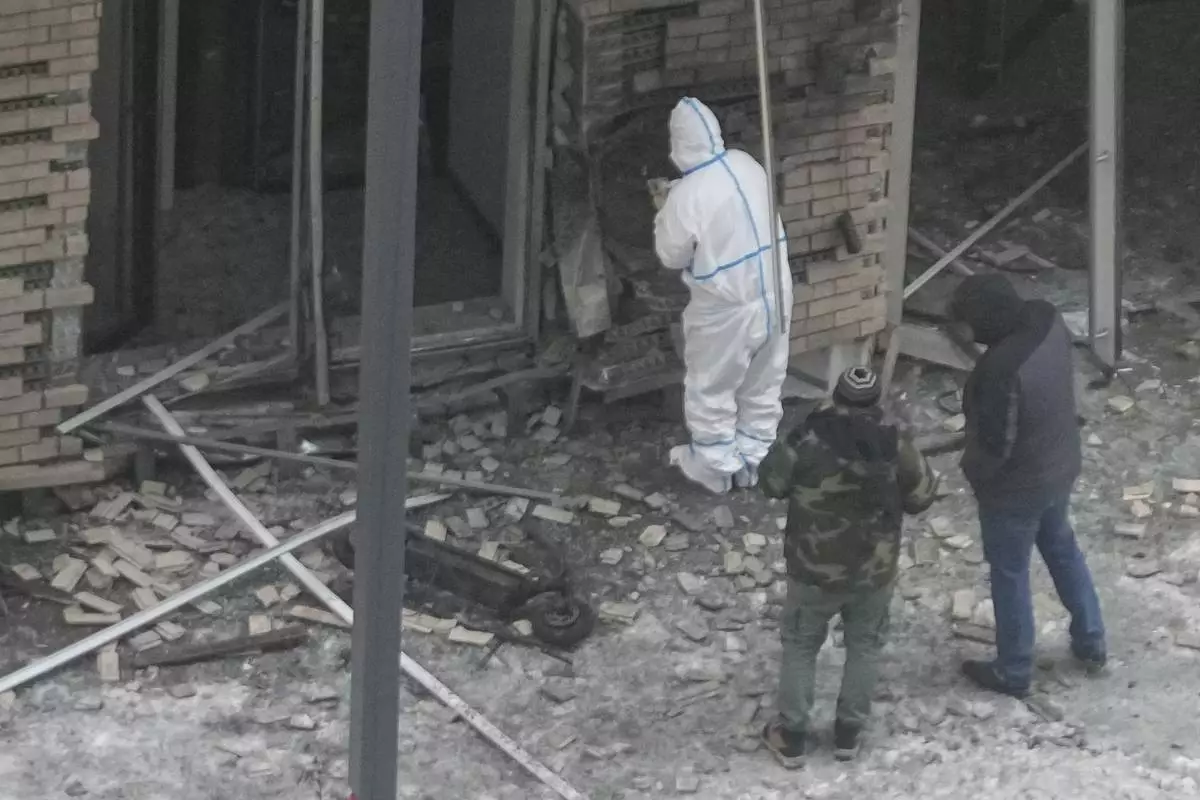
Investigators work near a scooter at the place where Lt. General Igor Kirillov, the head of Russia's Nuclear, Biological, and Chemical Defence Forces and his assistant Ilya Polikarpov were killed by an explosive device planted close to a residential apartment's block in Moscow, Russia, Tuesday, Dec. 17, 2024. (AP Photo)
From public hangings in the town square to lethal injections witnessed by journalists, executions historically have mostly been carried out with at least some public scrutiny. Indiana was expected to again diverge from that tradition Wednesday, until state prison officials granted Joseph Corcoran 's request to include a reporter among those witnessing his early-morning execution.
The state had said no independent witnesses would be present due to Indiana laws shielding information about the death penalty. But the editor of the Indiana Capital Chronicle posted on X after the early Wednesday execution that Corcoran put one of the outlet’s reporters on his own list of permitted witnesses and she was allowed to observe.
Prior to the change, some First Amendment advocates and death penalty experts call Indiana's lack of transparency during the gravest of government punishments alarming.
Media witnesses play a crucial role in executions by providing the public with independent, firsthand and factual accounts, said Robin Maher, executive director of the Death Penalty Information Center (DPIC).
“Media ensures government accountability and transparency in an otherwise closed and secretive process,” Maher said. “The decision to exclude media witnesses raises troubling questions about whether state officials lack the confidence or the ability to conduct the execution without botching it.”
The Associated Press aims to cover every U.S. execution because the public has a right to know about all stages of the criminal justice process — including when things do not go according to the government's plans. Witnesses from the AP and other news organizations have been able to tell the public when executions went awry, including in Idaho, Alabama, Arizona, Oklahoma and Ohio.
Formal descriptions of lethal injections by prison officials are sometimes sanitized compared with the detailed accounts offered by journalists. Federal executioners who put 13 inmates to death by lethal injection during the last months of the Trump administration likened the process to falling asleep, while reports by the AP and other outlets described how the condemned persons' stomachs shuddered as the pentobarbital took effect.
In response to a previous AP request for comment on the state’s barring of independent witnesses, Indiana Department of Correction spokesperson Brandi Pahl cited state law explicitly outlining who can be at an execution. Media witnesses are not listed.
The Indiana Department of Correction announced Corcoran's death in a brief written statement that included little information except that the “execution process” started shortly after midnight and that Corcoran was pronounced dead at 12:44 a.m.
Corcoran attorney Larry Komp said afterward that he, the Indiana Capital Chronicle reporter and two family members were Corcoran's witnesses. The Capital Chronicle reported that the witnesses had limited visibility of the chamber for about six minutes, during which time Corcoran first appeared awake with his eyes blinking, then after a brief movement of his left hand a few minutes later, he did not move again. The prison warden closed the blinds to the witness room about four minutes before the time the state said Corcoran was pronounced dead, the outlet reported.
The earliest death penalty laws were recorded 3,800 years ago in the Code of King Hammaurabi of Babylon, according to the Death Penalty Information Center. Over the next 1,800 years, death sentences were often carried out by public crucifixion, drowning, beating, burning or impalement. By the 10th century, public hangings were the norm in parts of Europe.
The United States carried out executions in public settings until 1834, when Pennsylvania became the first state to move them into correctional facilities, according to DPIC.
Today the vast majority of the 27 states with capital punishment and the federal government recognize the need for public oversight via media witnesses.
Indiana and Wyoming are the only states that prohibit them, according to the DPIC. Wyoming has executed one person in the last half-century, killing Mark Hopkinson by lethal injection in 1992.
The only U.S. Supreme Court ruling on the subject was in 1890, when it upheld a total ban on media access to executions in a case out of Minnesota.
Despite the ban, in 1906 a reporter sneaked into a Minnesota jail to witness the hanging of William Williams. The execution was botched: The rope was too long, and Williams hit the floor after dropping through the gallows of the trap door. Jail deputies had to hoist him up again by the rope, holding him for 14 minutes until he strangled to death.
Minnesota abolished the death penalty five years later.
Another Supreme Court ruling in 1980 found that the First Amendment guaranteed the public — and the media — the right to attend murder trials: “People in an open society do not demand infallibility from their institutions, but it is difficult for them to accept what they are prohibited from observing,” the court wrote.
In the years since, lower federal courts have frequently extended the right to attend criminal trials to other proceedings, including executions.
“To determine whether lethal injection executions are fairly and humanely administered, or whether they ever can be, citizens must have reliable information about the ‘initial procedures’ which are invasive, possibly painful and may give rise to serious complications. This information is best gathered first-hand or from the media, which serves as the public’s surrogate,” a 9th U.S. Circuit Court of Appeals panel wrote in 2002.
Still, public access to U.S. executions is eroding, according to research from the DPIC. At least 16 states have passed death penalty secrecy laws since 2010, the group says, many of them focused on keeping details obscured about where lethal injection drugs are obtained.
Pressure from news organizations has sometimes prompted prison officials to change policies. That was the case in 2017, when the Arkansas Department of Correction announced that media witnesses would not be allowed pencils or paper to take notes; that was changed after outlets reported on the ban.
In Idaho, the AP, East Idaho News and The Idaho Statesman are suing for access to a part of the execution facility that is currently hidden from view. The news organizations want to be able to watch as lethal injection drugs are administered into IV lines.
Idaho prison officials have not yet officially responded to the lawsuit but maintain that the state has one of the most transparent execution processes in the nation.
Ahead of Corcoran's scheduled execution, the heads of the Hoosier State Press Association, Indiana Broadcasters Association, Freedom of the Press Foundation and Indiana Chapter of the Society of Professional Journalists sent a letter to Gov. Eric Holcomb calling secrecy a “miscarriage of justice.”
“The decision to carry out an execution is the gravest single act a state can partake in, and such an act warrants an impartial witness who bears the burden of reporting the process to the people of Indiana,” the organizations said.
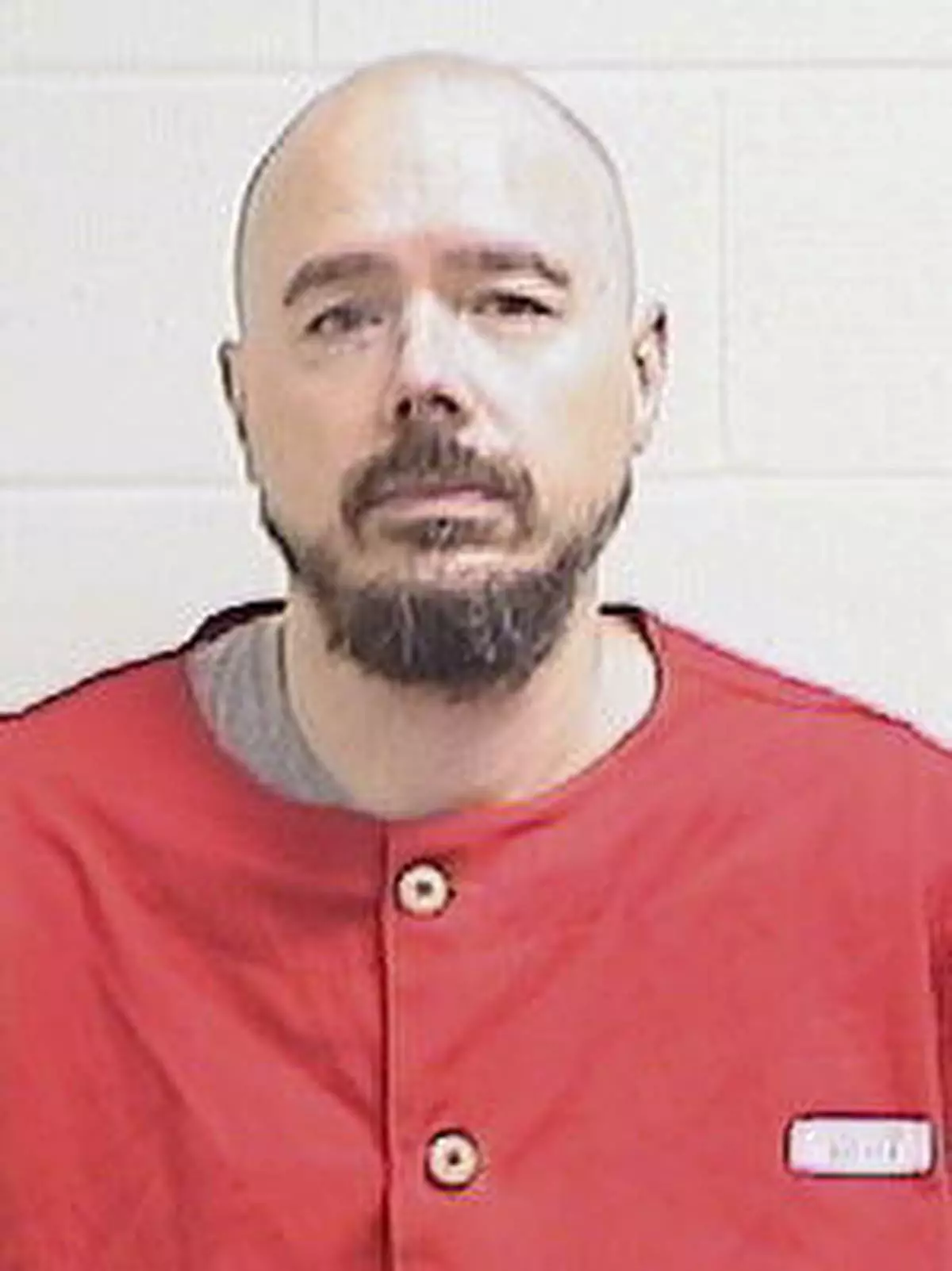
This undated photo provided by the Indiana Department of Corrections, shows Joseph Corcoran, who is scheduled to be executed before sunrise on Dec. 18, 2024. (Indiana Department of Corrections via AP)
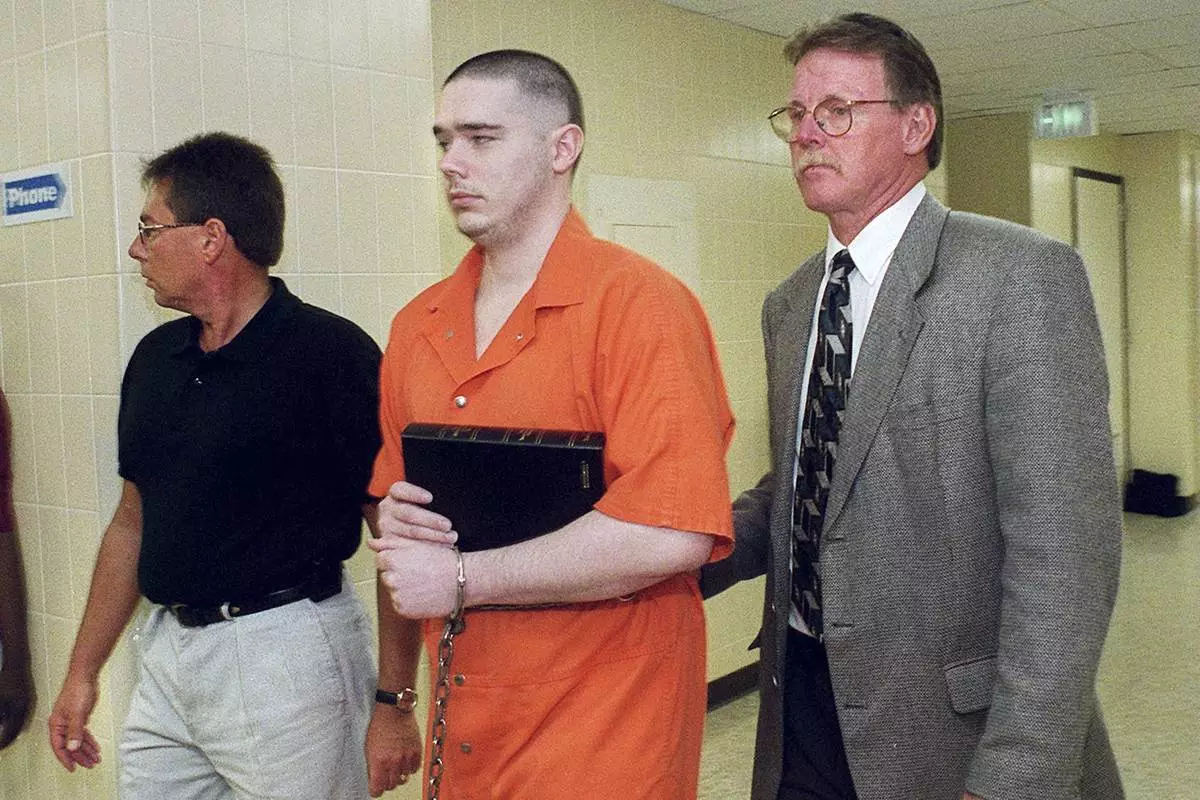
Joseph Corcoran is led to the City-County Lockup on Aug. 26, 1999, in Fort Wayne, Ind., after being sentenced to death in the slayings of four people in July 1997. (Matt Sullivan/The Journal-Gazette via AP)
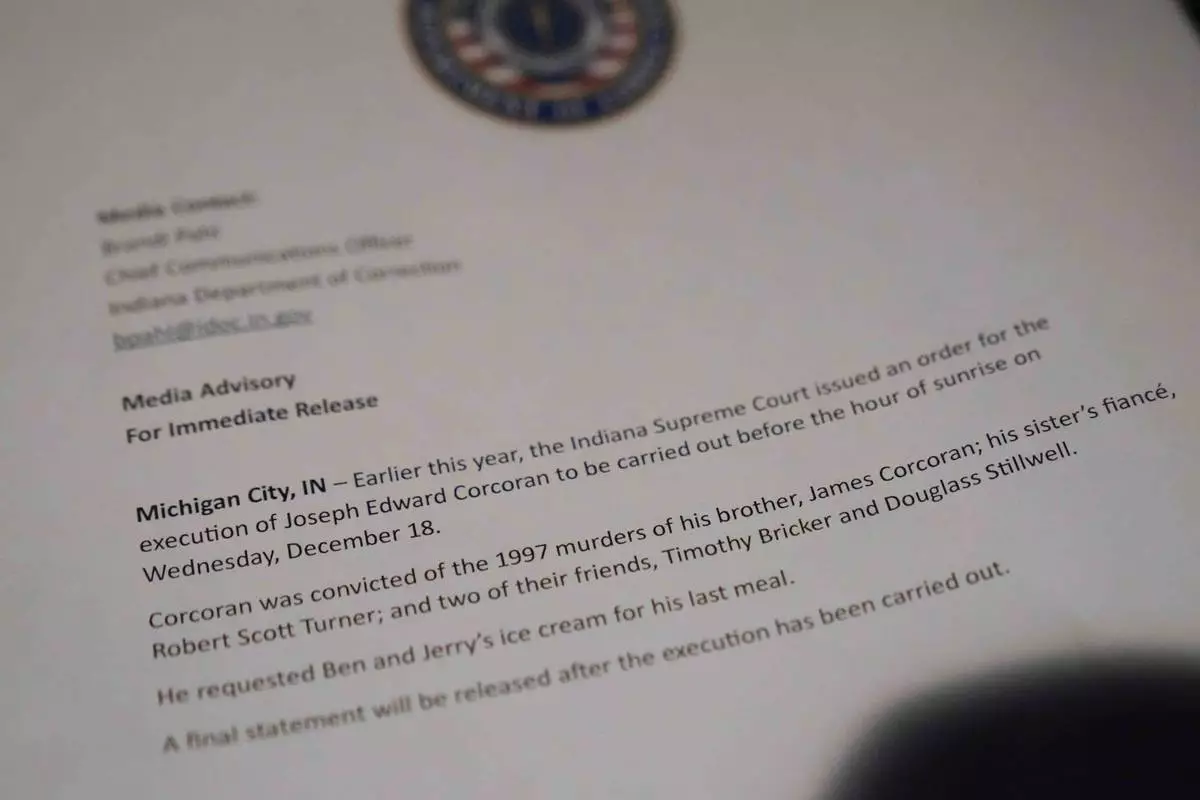
Officials deliver a paper statement outside of Indiana State Prison where, barring last-minute court action or intervention by Gov. Eric Holcomb, Joseph Corcoran, 49, convicted in the 1997 killings of his brother and three other people, is scheduled to be put to death by lethal injection before sunrise Tuesday, Dec. 17, 2024, in Michigan City, Ind. (AP Photo/Erin Hooley)
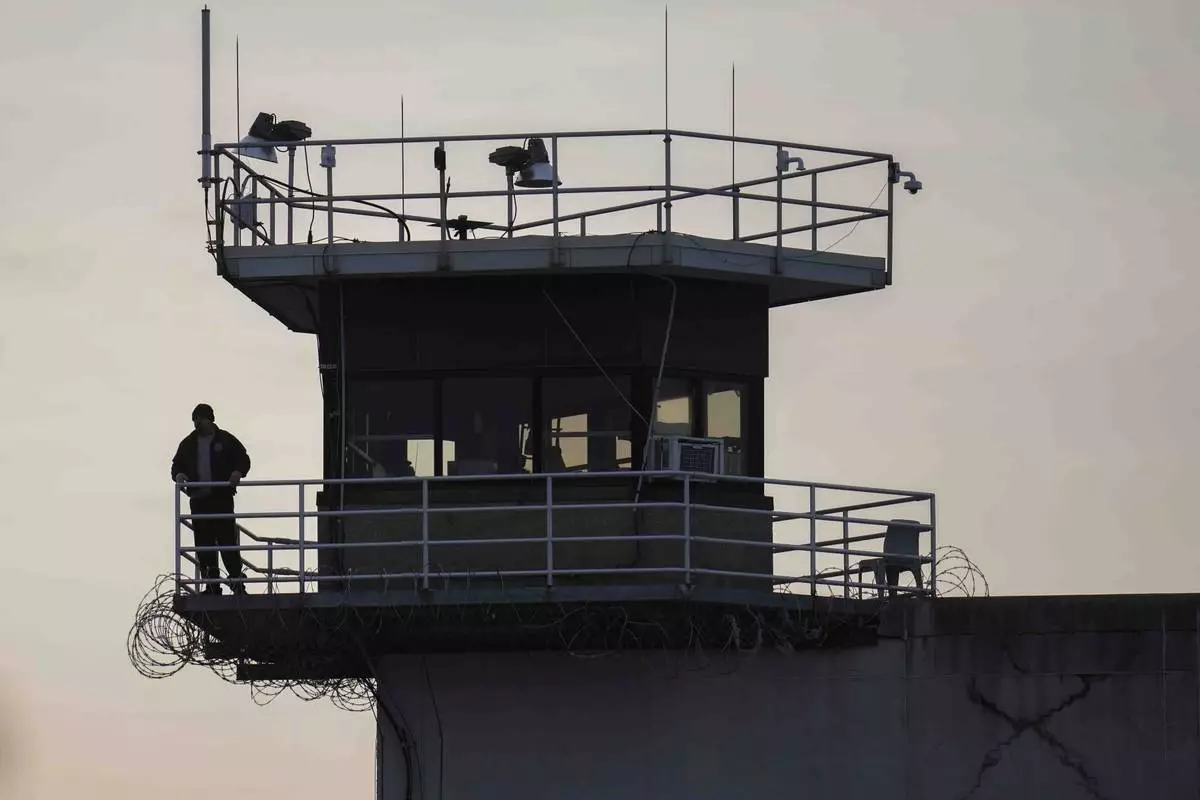
A guard stands in a tower at Indiana State Prison where, barring last-minute court action or intervention by Gov. Eric Holcomb, Joseph Corcoran, 49, convicted in the 1997 killings of his brother and three other people, is scheduled to be put to death by lethal injection before sunrise Tuesday, Dec. 17, 2024, in Michigan City, Ind. (AP Photo/Erin Hooley)
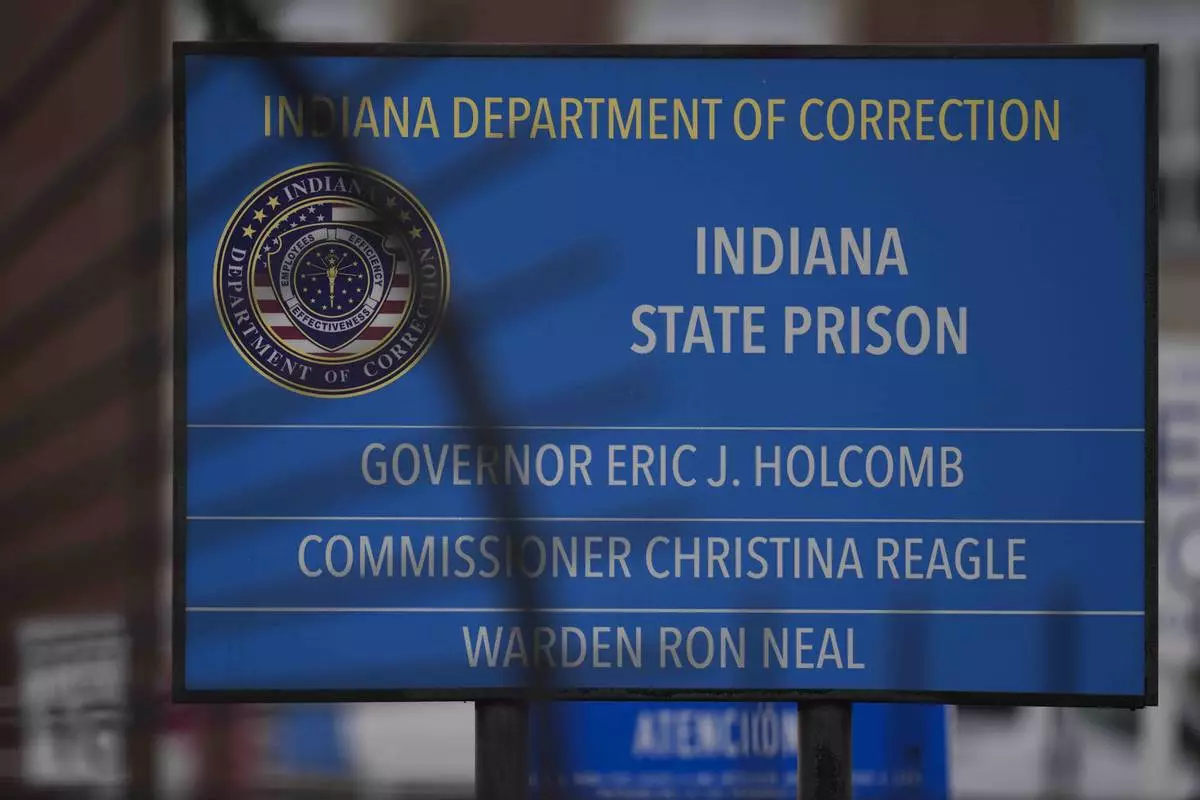
A sign is posted outside of Indiana State Prison where, barring last-minute court action or intervention by Gov. Eric Holcomb, Joseph Corcoran, 49, convicted in the 1997 killings of his brother and three other people, is scheduled to be put to death by lethal injection before sunrise Tuesday, Dec. 17, 2024, in Michigan City, Ind. (AP Photo/Erin Hooley)
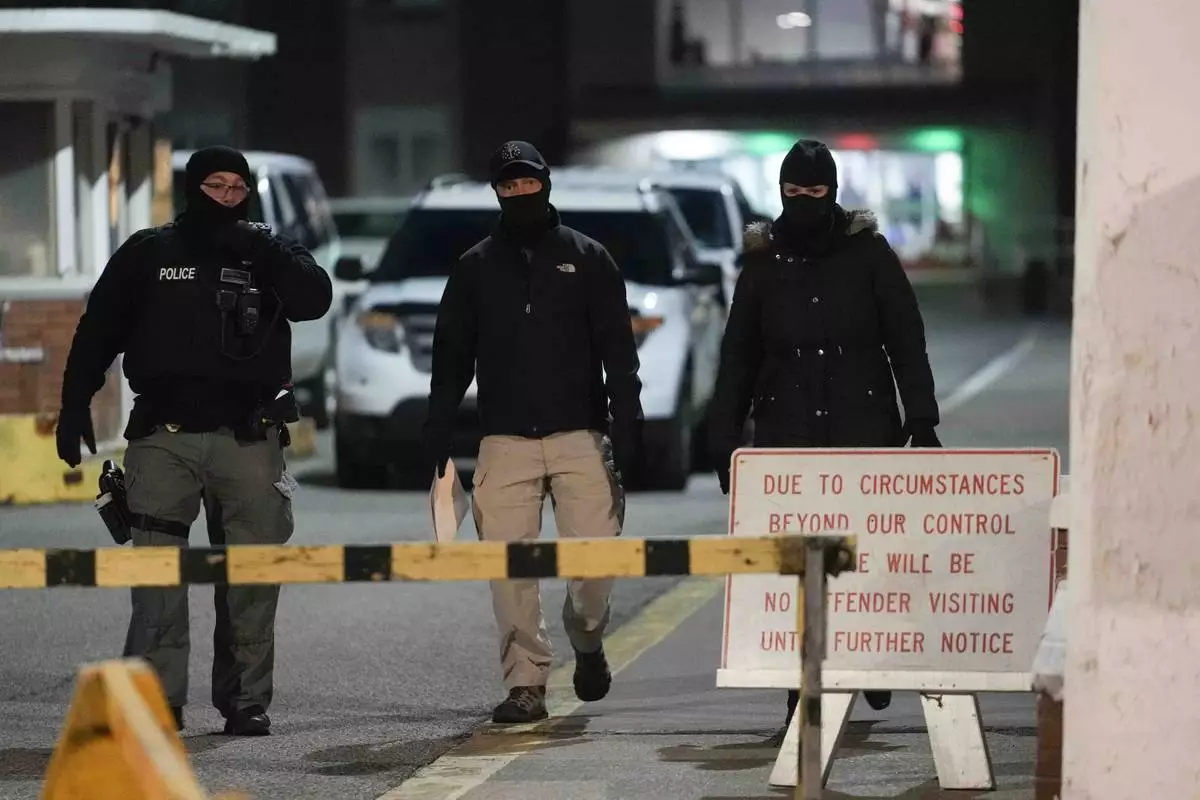
Officials deliver a paper statement outside of Indiana State Prison where, barring last-minute court action or intervention by Gov. Eric Holcomb, Joseph Corcoran, 49, convicted in the 1997 killings of his brother and three other people, is scheduled to be put to death by lethal injection before sunrise Tuesday, Dec. 17, 2024, in Michigan City, Ind. (AP Photo/Erin Hooley)
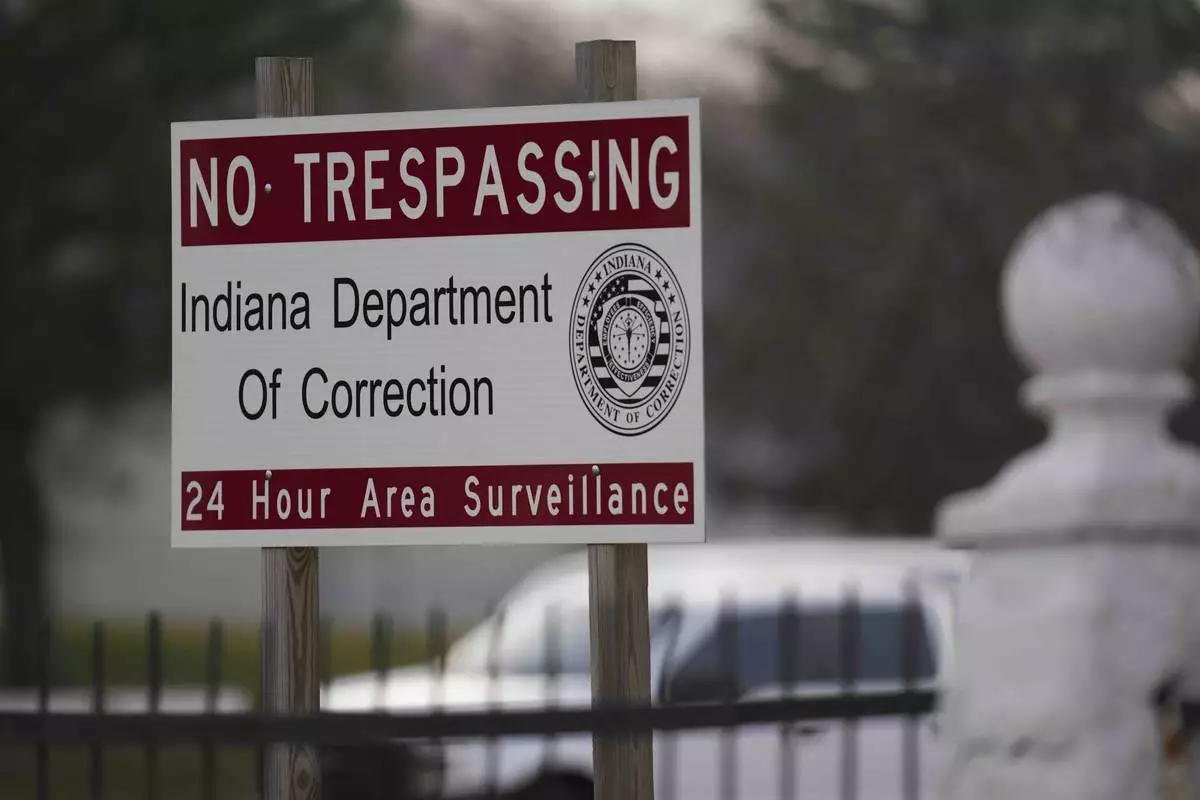
A sign is posted outside of Indiana State Prison where, barring last-minute court action or intervention by Gov. Eric Holcomb, Joseph Corcoran, 49, convicted in the 1997 killings of his brother and three other people, is scheduled to be put to death by lethal injection before sunrise Tuesday, Dec. 17, 2024, in Michigan City, Ind. (AP Photo/Erin Hooley)








